Wifrid was banished from Northumbria
in 681. He was offered protection by King Aethelwealh and queen Eaba of
the South Saxons, and headed for the area now known as Sussex.
Aethelwealh
and Eaba were both Christians, but most of the South Saxon were pagans;
plenty of work for Wilfrid!
Aethelwealh granted Wilfrid an estate at Selsey, near the south
coast. The 16th century
mural below, now in Chichester cathedral, shows this happening. The
church on the right below is St Wilfrid’s, Church Norton, just outside
the village of Selsey: this is thought to be the site of Wilfrid’s
monastery, founded c682, occupied by a group of monks that came from
Northumbria with Wilfrid.
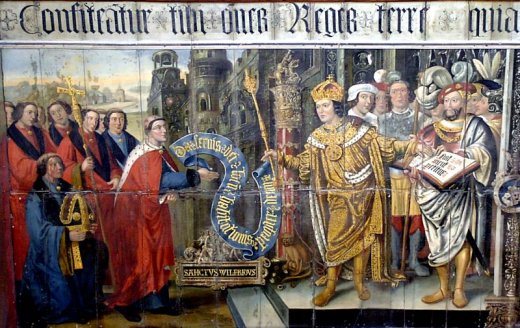
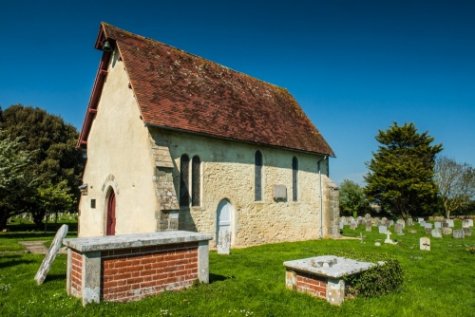
Wilfrid and his monks soon got going converting the local Pagans. Quite early he had success on the Isle of Wight - not an easy task! On this page I'm going to focus on an area local and familiar to us - the Meon valley in Hampshire.
The river Meon runs from East Meon near Petersfield down to the sea at Hill Head, near Titchfield. The river allowed access to the various communities in the valley where it is said Wilfrid founded a series of churches, though the precise history is not clear. However, the churches now in the Meon valley are very interesting and have a good deal of history: here are three of them.
Below is Corhampton church: this building is Saxon, over 1000 year old and hardly altered. Highly unusually, it does not have a dedication. The church retains its Saxon altar stone and sanctuary chair. Outside (below right) is a Saxon sundial, with eight 'tides' rather than twelve hours.
Inside a some splendid 12th century wall paintings, the best known featuring the Winchester saint, St Swithun. I have written about this in my posting on St Swithun here.
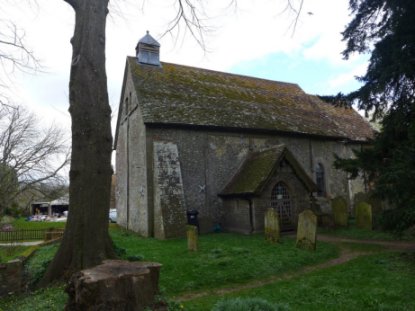
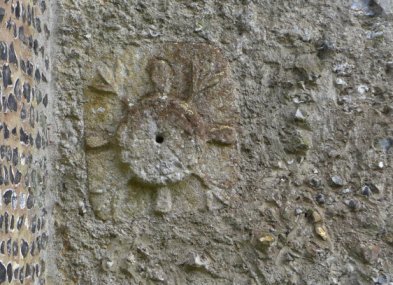
Below is the Church of Our Lady of Warnford. Local tradition says that Wilfrid established his headquarters here while converting the Meon Valley pagans. The church was rebuilt in Norman style c 1130. There are many things to see, including the grave and memorial stone of a 13th century Crusader.
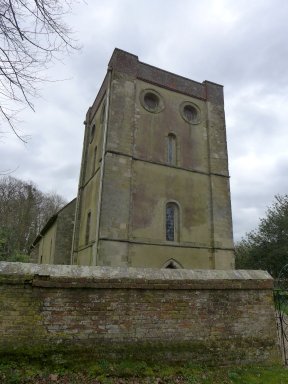
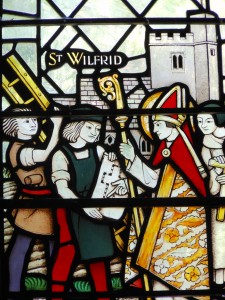
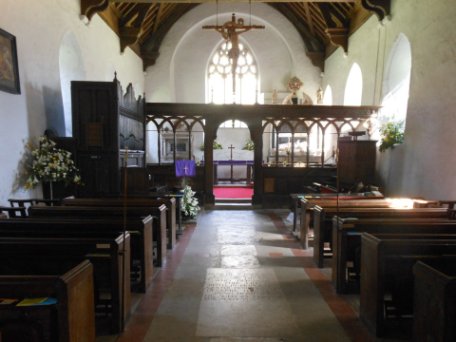
All saints, East Meon, described by Pevsner as 'One of the most thrilling village churches in Hampshire'.
Work on the present church began c1130 - 1140, on the site of a Saxon church reputedly founded by Wilfrid. Restoration was carried out in the early 20th century by Ninian Comper, who, as would be expected, made a good job of it.
A highly significant feature is the Tournai font, dating from c1150, one of four to be found in Hampshire. I have written about this font, and the others in the county, here.
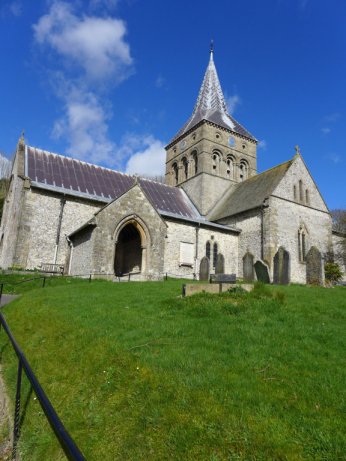
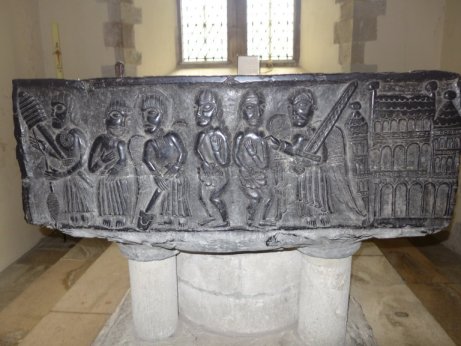
St Wilfrid page1 Home page - explore the site